
Genoa: The Maritime Jewel of Italy
Genoa, the capital of the Liguria region, is a city brimming with history, culture, and charm. Known as La Superba, or The Proud, Genoa boasts a rich maritime heritage that dates back to ancient times. The city's historical center is a labyrinth of narrow alleys, or caruggi, where every turn reveals hidden treasures, from medieval churches to charming piazzas. Wander along the picturesque harbor, Porto Antico, where you can explore the famous Aquarium of Genoa, one of the largest in Europe. The waterfront is also home to the Galata Museo del Mare, offering a deep dive into the city's seafaring past. For a panoramic view of Genoa, take the funicular up to Spianata Castelletto, where the city's terracotta rooftops and the sparkling Ligurian Sea create a breathtaking vista. Culinary delights await at every corner in Genoa. Savor traditional dishes like pesto alla Genovese, focaccia, and fresh seafood. The city's vibrant food markets, such as Mercato Orientale, offer a feast for the senses with their array of local produce and delicacies. As you stroll through Genoa, you'll discover an array of shops selling everything from handmade crafts to high-end fashion, making it a perfect destination for both sightseeing and shopping.
Local tips in Genoa
- Wear comfortable shoes. Genoa's narrow alleys and hilly terrain can be challenging.
- Visit the Aquarium of Genoa early in the morning to avoid crowds.
- Try the local street food, especially the focaccia and farinata.
- Take the public elevators and funiculars for unique views of the city.
- Spend some time in the lesser-known neighborhoods like Boccadasse, a charming fishing village.
Neighbourhoods in Genoa
Genoa: The Maritime Jewel of Italy
Genoa, the capital of the Liguria region, is a city brimming with history, culture, and charm. Known as La Superba, or The Proud, Genoa boasts a rich maritime heritage that dates back to ancient times. The city's historical center is a labyrinth of narrow alleys, or caruggi, where every turn reveals hidden treasures, from medieval churches to charming piazzas. Wander along the picturesque harbor, Porto Antico, where you can explore the famous Aquarium of Genoa, one of the largest in Europe. The waterfront is also home to the Galata Museo del Mare, offering a deep dive into the city's seafaring past. For a panoramic view of Genoa, take the funicular up to Spianata Castelletto, where the city's terracotta rooftops and the sparkling Ligurian Sea create a breathtaking vista. Culinary delights await at every corner in Genoa. Savor traditional dishes like pesto alla Genovese, focaccia, and fresh seafood. The city's vibrant food markets, such as Mercato Orientale, offer a feast for the senses with their array of local produce and delicacies. As you stroll through Genoa, you'll discover an array of shops selling everything from handmade crafts to high-end fashion, making it a perfect destination for both sightseeing and shopping.
When is the best time to go to Genoa?
Iconic landmarks you can’t miss
Aquarium of Genoa
Explore the largest aquarium in Italy, home to thousands of marine species and unforgettable experiences for families and ocean lovers alike.
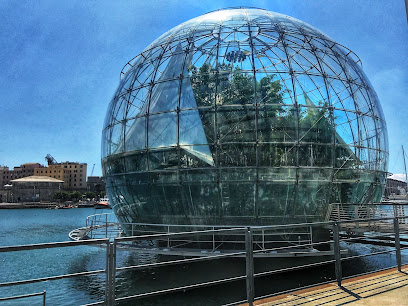
Piazza De Ferrari
Discover the grandeur of Piazza De Ferrari, a vibrant square in Genoa, Italy, adorned with a magnificent fountain and surrounded by historic architecture.
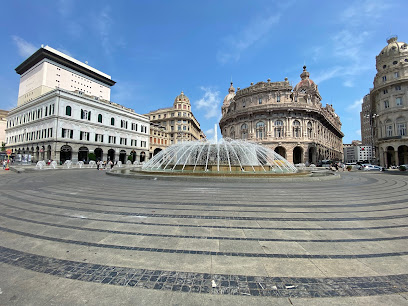
Porto Antico
Explore Porto Antico: A captivating waterfront destination in Genoa blending history, culture, and modern attractions for an unforgettable experience.
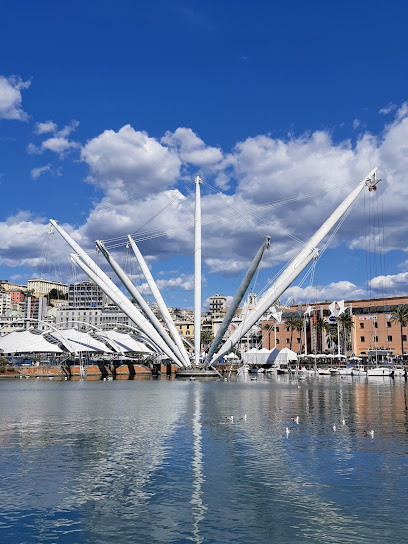
Cattedrale di San Lorenzo
Explore the stunning Cattedrale di San Lorenzo in Genoa, a Gothic masterpiece rich in history and breathtaking views that capture the essence of the city.

Galata Museo del Mare
Discover the maritime heritage of Italy at the Galata Museo del Mare in Genoa, where history, adventure, and culture come alive.
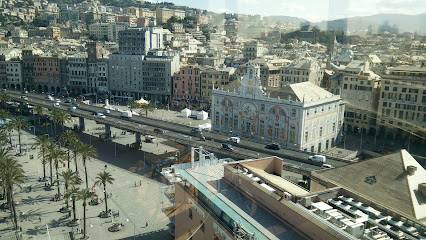
Doge's Palace
Explore the grandeur of the Doge's Palace in Genoa, a cultural landmark showcasing the rich history and art of the Republic of Genoa.

Christopher Columbus' House
Discover the rich maritime history at Christopher Columbus' House in Genoa, where the legacy of exploration comes to life.
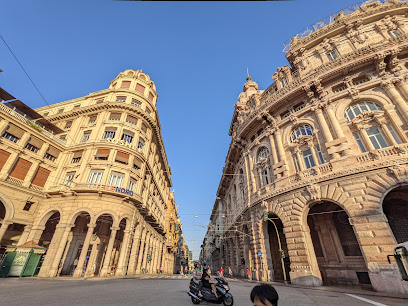
Piazza della Vittoria
Discover the historical allure of Piazza della Vittoria in Genoa, where stunning architecture meets vibrant local culture and history.
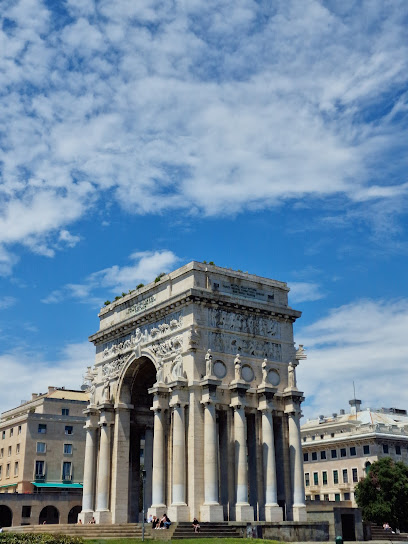
Piazza Corvetto
Discover the vibrant charm of Piazza Corvetto, a historic square in Genoa, where culture, architecture, and local life come together beautifully.
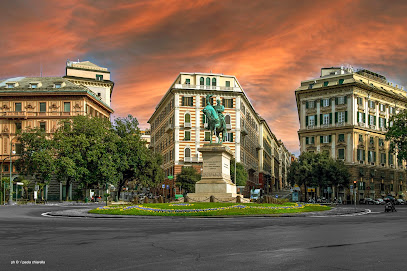
Royal Palace Museum
Explore the Royal Palace Museum in Genoa - a treasure trove of art, history, and stunning architecture nestled in Italy's vibrant cultural scene.
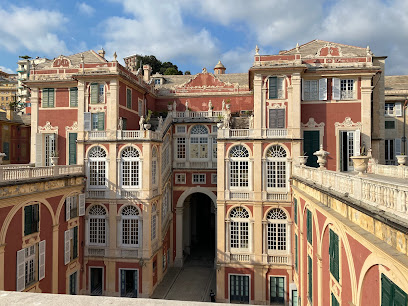
Natural Area Parco delle Mura
Experience the breathtaking views and rich history of Parco delle Mura, a premier hiking area in the heart of Genoa, Italy, perfect for all nature lovers.
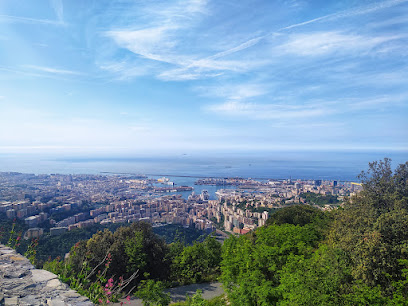
Villa Durazzo-Pallavicini
Discover the serene beauty and historical charm of Villa Durazzo-Pallavicini, a hidden gem in Genoa's lush landscape.
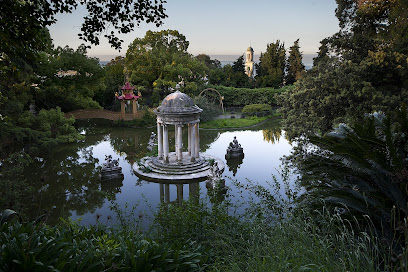
Bigo
Discover the stunning panoramic views of Genoa from Bigo, an architectural marvel offering a unique perspective on this historic port city.
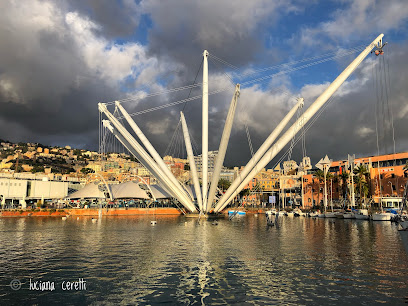
D'Albertis Castle
Discover the historical charm of D'Albertis Castle in Genoa, with breathtaking views, captivating art, and serene gardens that blend history and nature.
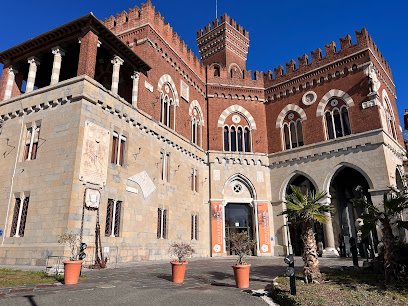
Santissima Annunziata del Vastato
Explore the architectural beauty and artistic treasures of Santissima Annunziata del Vastato, a must-visit basilica in the heart of Genoa.
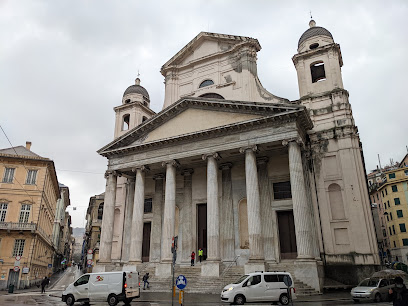
Unmissable attractions to see
Aquarium of Genoa
Explore the breathtaking Aquarium of Genoa, a top-tier destination where marine wonders and conservation come together in a stunning seafront setting.
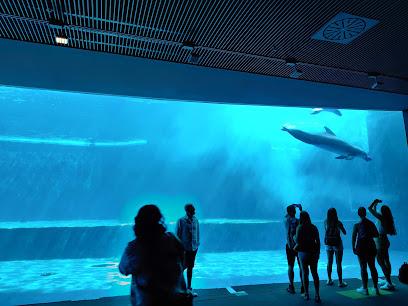
Piazza De Ferrari
Explore Piazza De Ferrari in Genoa: A blend of history, culture, and stunning architecture surrounding a magnificent fountain.
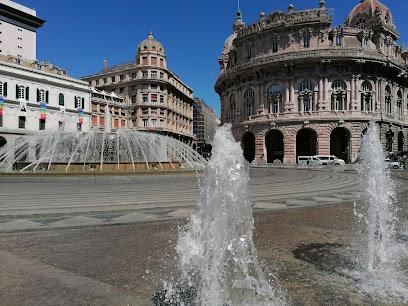
Cattedrale di San Lorenzo
Discover the architectural beauty and rich history of Cattedrale di San Lorenzo, a Gothic masterpiece in the heart of Genoa.
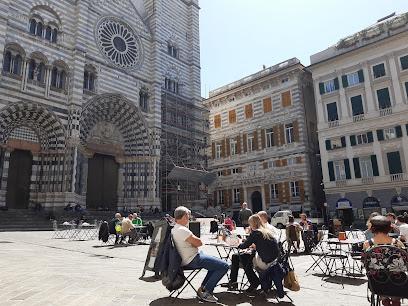
Galata Museo del Mare
Explore the rich maritime history of Genoa at the Galata Museo del Mare, where the sea's legacy comes alive through fascinating exhibits and stunning views.
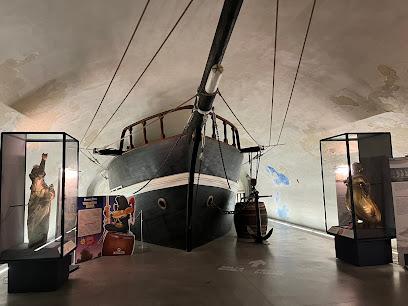
Doge's Palace
Discover the majestic Doge's Palace in Genoa, a historic landmark showcasing opulent architecture and captivating art exhibitions.
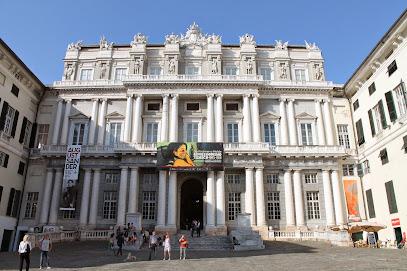
Priamar Fortress
Discover the historic Priamar Fortress in Savona, a captivating blend of architecture, archaeology, and art that showcases Italy's rich cultural heritage.
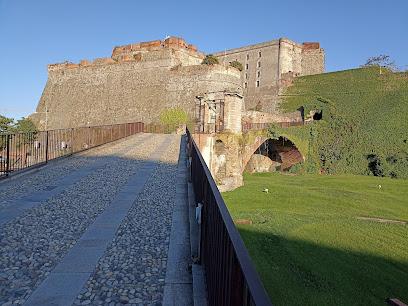
Casa di Cristoforo Colombo
Discover the birthplace of Christopher Columbus at Casa di Cristoforo Colombo, a captivating historical site in the heart of Genoa.
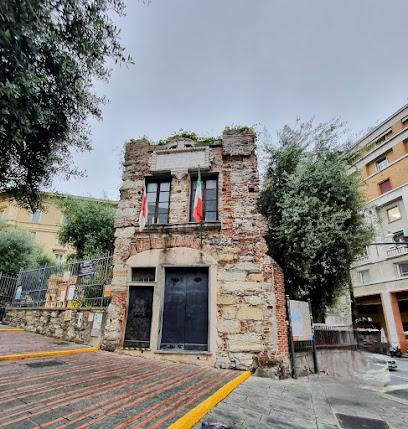
Belvedere Castelletto
Experience the stunning panoramic views of Genoa and the Mediterranean Sea at Belvedere Castelletto, a must-visit scenic attraction.
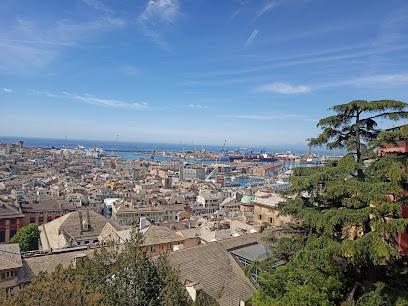
Abbazia di San Fruttuoso
Discover the historic Abbazia di San Fruttuoso, a serene gem on the Italian Riviera, blending breathtaking views with rich cultural heritage.
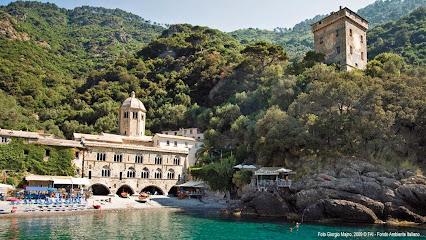
Stazioni Marittime SpA
Explore Stazioni Marittime SpA, Genoa's vibrant cruise terminal, where maritime adventures and Italian hospitality await every traveler.
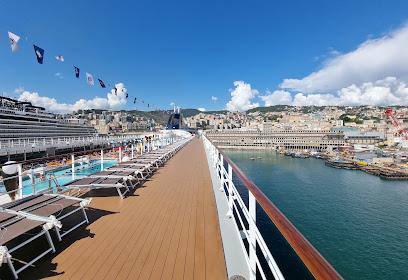
Parchi di Nervi
Discover the tranquil charm of Parchi di Nervi, a coastal park in Genoa offering lush gardens, stunning views, and rich cultural heritage.
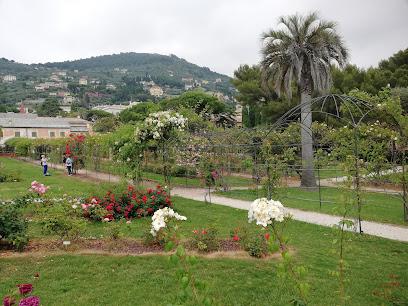
Baia di Paraggi
Discover the serene beauty of Baia di Paraggi, a hidden coastal gem offering stunning beaches, delicious cuisine, and breathtaking views of the Ligurian Sea.
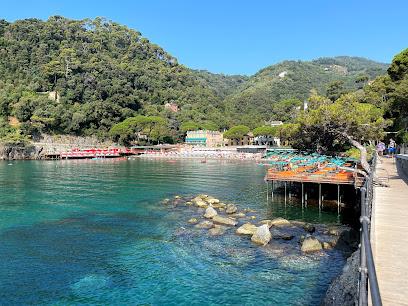
Teatro Carlo Felice
Experience the vibrant cultural scene at Teatro Carlo Felice in Genoa, where enchanting performances and stunning architecture come together.
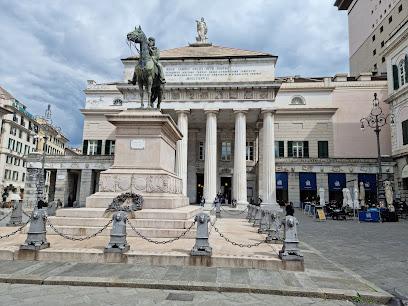
Royal Palace Museum
Explore the opulent Royal Palace Museum in Genoa, a UNESCO World Heritage site, rich in art, history, and stunning architecture.
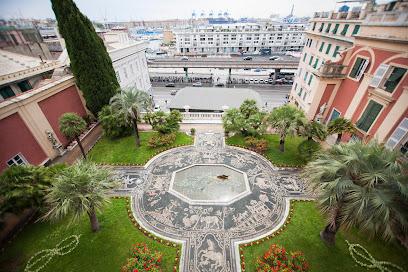
Piazza Corvetto
Discover the vibrant charm of Piazza Corvetto, a historical square in Genoa, where culture, cuisine, and community converge in scenic beauty.
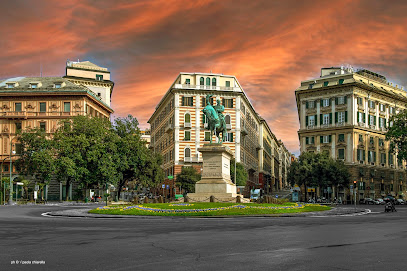
Essential places to dine
Osteria di Vico Palla
Experience authentic Ligurian flavors at Osteria di Vico Palla—where traditional Italian cuisine meets fresh seafood delights.
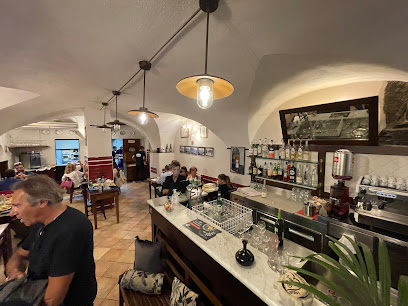
TrattoriaUgo
Discover Trattoria Ugo in Genoa for an unforgettable taste of traditional Italian and seafood cuisine in a cozy setting.
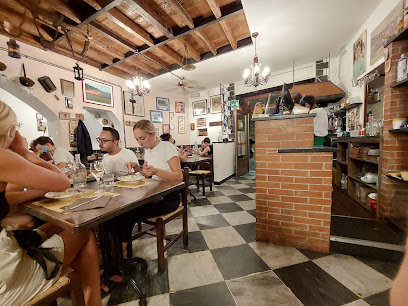
Trattoria delle Grazie
Discover authentic Ligurian flavors at Trattoria delle Grazie in Genoa - a delightful dining experience awaits!
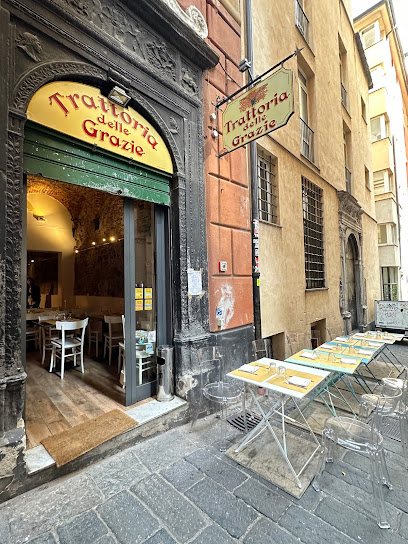
Trattoria Vegia Zena
Experience authentic Ligurian seafood and Northern Italian cuisine at Trattoria Vegia Zena in Genoa - a true culinary delight.
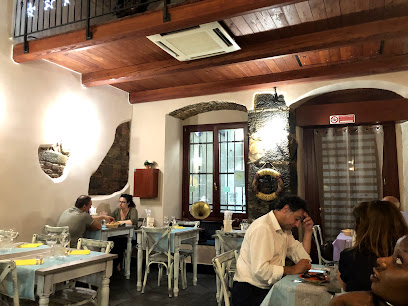
Trattoria Rosmarino
Discover authentic Ligurian cuisine at Trattoria Rosmarino in Genoa – where fresh seafood meets traditional Italian flavors.
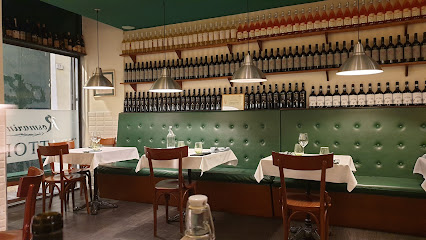
Soho
Discover Soho in Genoa – where exquisite Italian cuisine meets vibrant atmosphere for an unforgettable dining experience.
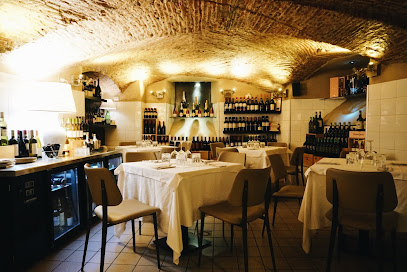
Le Rune
Experience authentic Italian cuisine at Le Rune in Genoa, where local flavors meet exquisite dining in a charming atmosphere.
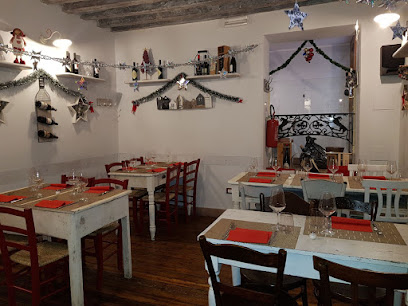
E. Prie Rosse
Experience authentic Ligurian cuisine at E. Prie Rosse in Genoa - where tradition meets flavor in every dish.
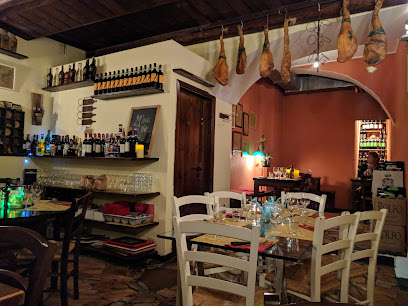
Da Leccarsi i Baffi
Experience authentic Italian and seafood delights at Da Leccarsi i Baffi in Genoa's charming Piazza Cavour.
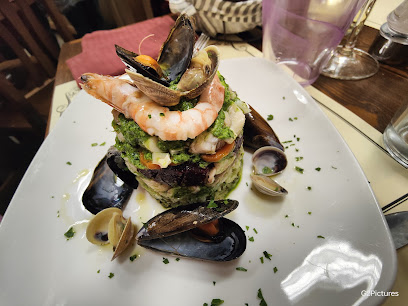
Locanda Spinola
Experience authentic Italian flavors at Locanda Spinola – where fresh seafood meets tradition in the heart of Genoa.
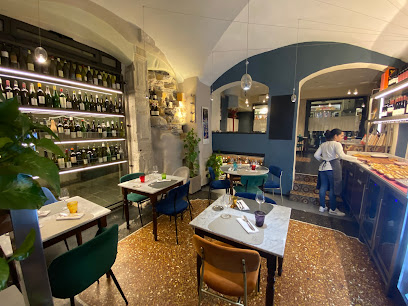
Zimino
Discover Zimino in Genoa for authentic Italian cuisine featuring fresh ingredients and traditional recipes in a warm atmosphere.
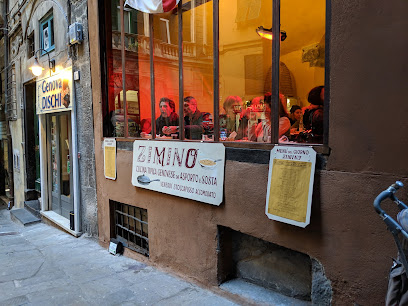
I Cuochi
Experience authentic Italian seafood cuisine at I Cuochi in Genoa - where every dish tells a story.
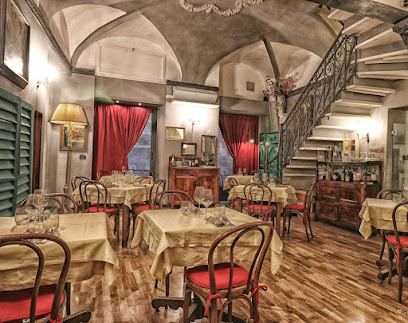
Zeffirino
Discover the finest Italian and seafood cuisine at Zeffirino in Genoa - where every meal is a celebration of flavor and tradition.
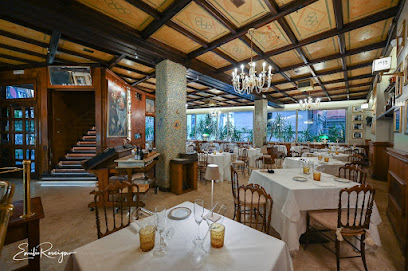
Vivarelli
Experience authentic Italian cuisine with fresh seafood delights at Vivarelli in the heart of Genoa, where every meal tells a delicious story.
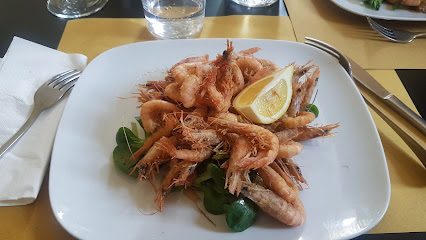
Cantine Camilla
Experience authentic Italian cuisine and exceptional wines at Cantine Camilla, a must-visit restaurant and wine bar in the heart of Genoa.
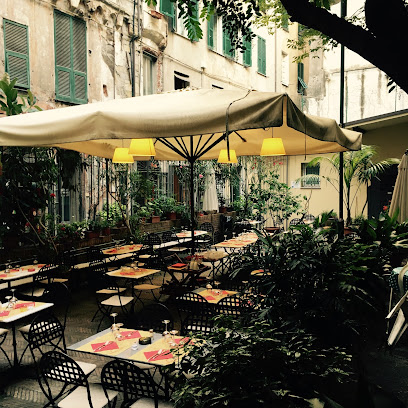
Markets, malls and hidden boutiques
Fiumara
Experience the vibrant shopping culture of Genoa at Fiumara, a shopping mall offering a variety of shops, dining, and entertainment options.
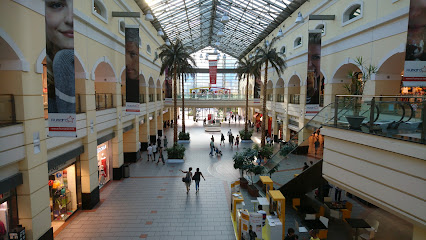
Galleria Giuseppe Mazzini
Explore the breathtaking Galleria Giuseppe Mazzini, a blend of historic charm and modern shopping in the heart of Genoa.
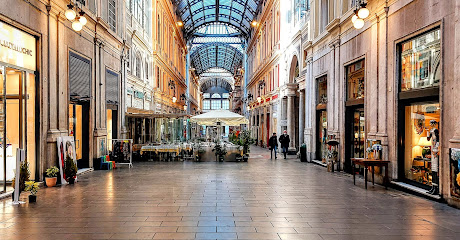
Bershka
Explore Bershka in Genoa for a stylish array of men's and women's clothing, accessories, and shoes that embody the latest fashion trends.
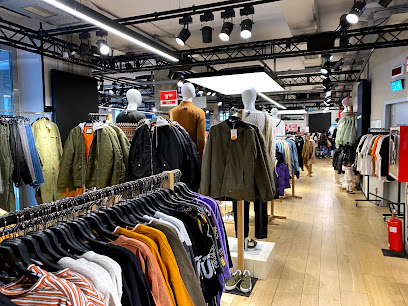
RINASCENTE Genoa Store
Explore RINASCENTE Genoa Store for a blend of high-end fashion, local delicacies, and a vibrant shopping atmosphere in the heart of Genoa.
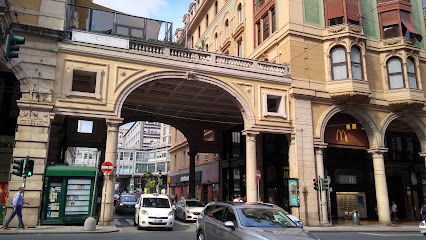
Louis Vuitton Genova
Experience the epitome of luxury shopping at Louis Vuitton Genova, where timeless elegance meets exquisite craftsmanship.
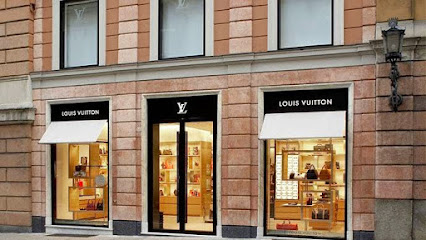
Glad store
Explore the vibrant fashion scene at Glad Store in Genoa, where contemporary style meets local charm in a chic shopping experience.
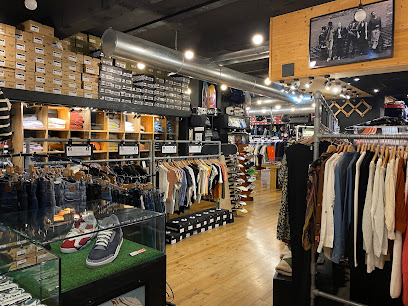
Best Store
Explore Best Store in Genoa: Your Ultimate Shopping Destination for Local Culture, Fashion, and Culinary Delights.
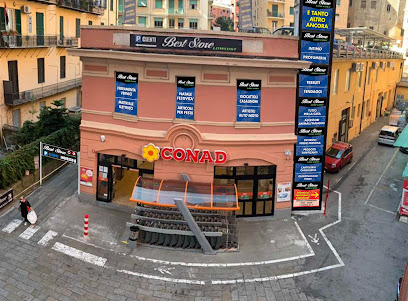
San Lorenzo Souvenir
Explore authentic Genoese culture at San Lorenzo Souvenir, offering unique gifts and local crafts that capture the spirit of Italy.
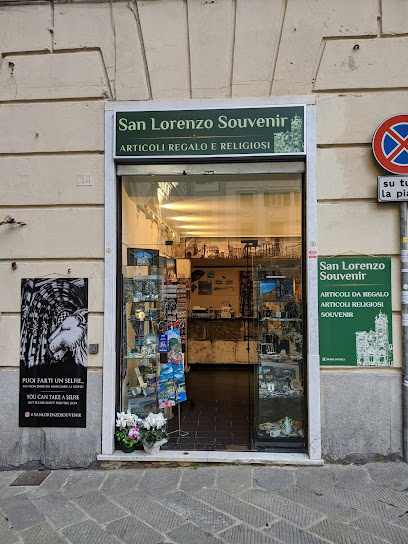
Pylones
Explore Pylones in Genoa for whimsical gifts that celebrate Italian creativity and charm, perfect for souvenirs or unique home decor.
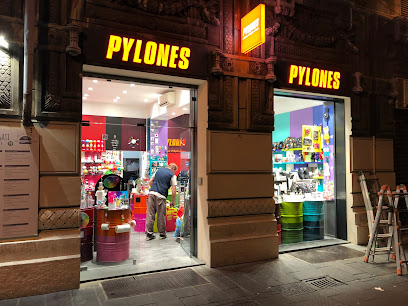
Genova Experience
Discover the essence of Genoa through local crafts, gourmet treats, and essential travel tips at Genoa Experience.
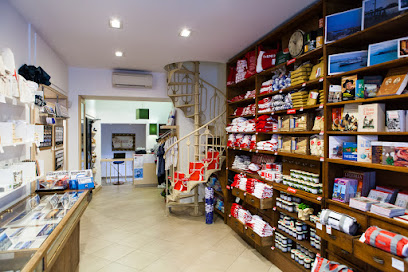
Pescetto Abbigliamento
Discover stylish clothing at Pescetto Abbigliamento in Genoa, where fashion and local culture blend seamlessly for an unforgettable shopping experience.
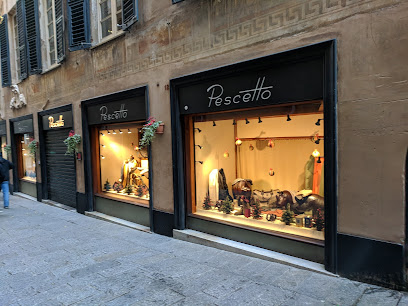
Mash vintage
Explore Mash Vintage in Genoa for unique, high-quality vintage clothing that reflects the charm of bygone eras.
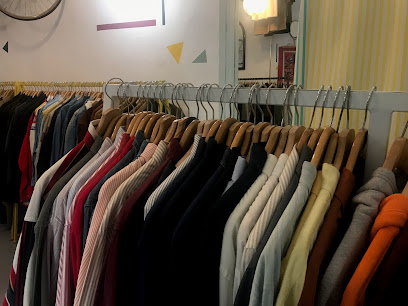
Lo Spaventapasseri
Explore the eclectic fashion offerings at Lo Spaventapasseri, a unique clothing store in the heart of Genoa, Italy.
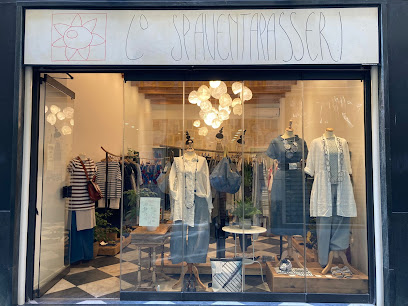
Dev
Discover the charm of Italian fashion at Dev Boutique in Genoa - a premier destination for stylish clothing and exquisite accessories.
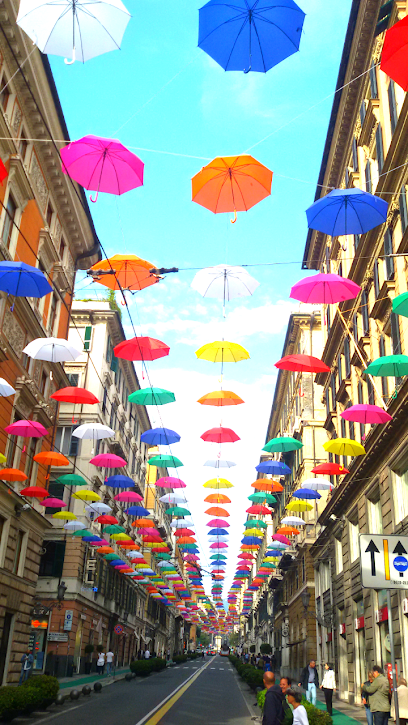
Almanacco Vintage Store
Uncover a world of vintage fashion at Almanacco Vintage Store in Genoa, where each piece tells a story and enhances your unique style.
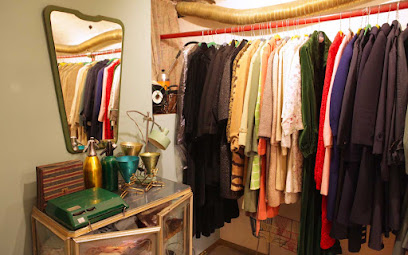
Essential bars & hidden hideouts
Scurreria Beer & Bagel
Discover the vibrant pub culture of Genoa at Scurreria Beer & Bagel, where craft beers meet delicious bagels in a lively atmosphere.
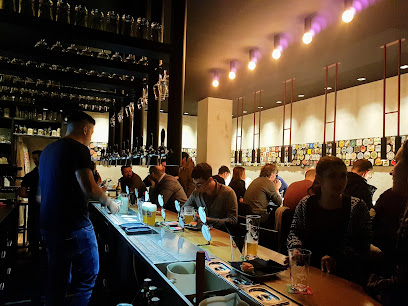
La Goletta Seaside pub
Experience the vibrant atmosphere and exquisite flavors at La Goletta Seaside, a must-visit pub in the heart of Genoa.
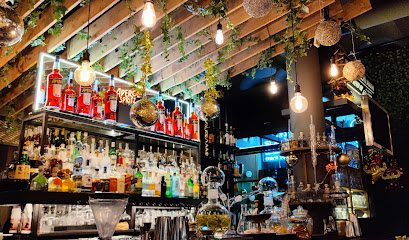
Les Rouges Cucina & Cocktails
Experience the best of Italian cuisine and innovative cocktails at Les Rouges Cucina & Cocktails in Genoa, a vibrant culinary destination for every traveler.
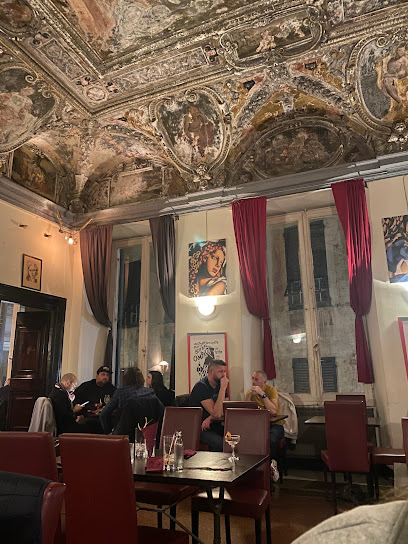
Hofbrauhaus Genova
Discover the taste of Bavaria in Genoa at Hofbrauhaus, a lively beer hall offering authentic German food and a variety of beers in a vibrant atmosphere.
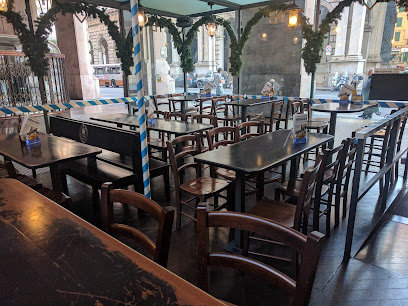
Irish Pub
Discover the charm of an authentic Irish experience in the heart of Genoa, with delicious cuisine and a vibrant atmosphere.
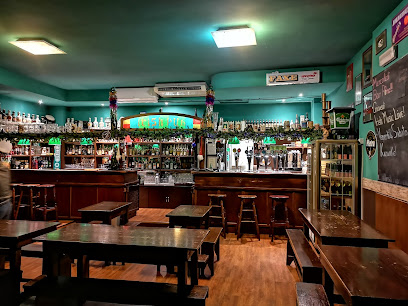
Kamun Lab
Discover the heart of Genoa's nightlife at Kamun Lab, a vibrant pub offering exceptional craft beers and a cozy atmosphere.
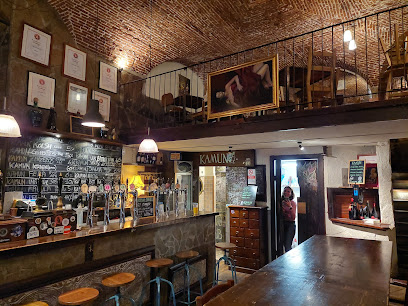
The Tartan Pub
Discover the lively atmosphere of The Tartan Pub in Genoa—your go-to destination for drinks, music, and unforgettable nights.
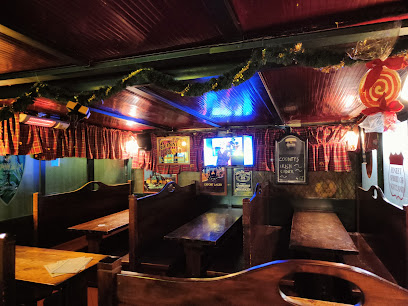
La Lepre
Experience the vibrant atmosphere of La Lepre, a charming bar in Genoa offering delightful drinks and a warm local vibe.
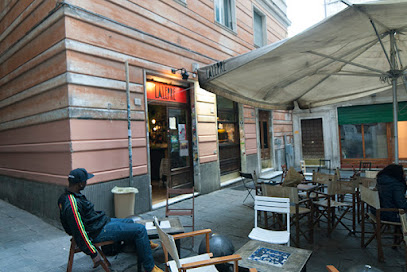
Bar Festival
Experience the vibrant Bar Festival in Genoa, where delicious fast food meets a lively atmosphere in the heart of Italy's cultural gem.
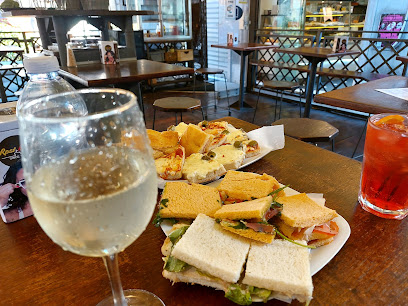
Rebus Cocktail Bar
Experience the vibrant atmosphere of Rebus Cocktail Bar in Genoa, where expertly crafted cocktails meet delicious small plates in a cozy setting.
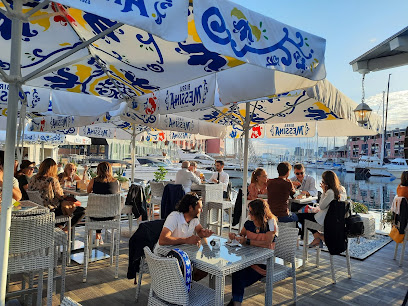
Moretti
Discover the vibrant nightlife at Moretti, a lively bar and cocktail haven in Genoa, perfect for unwinding and enjoying expertly crafted drinks.
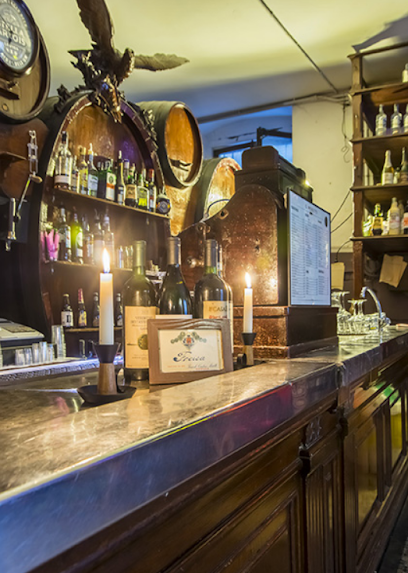
Old Port Bar
Discover Old Port Bar in Genoa - a charming oasis for drinks and delightful snacks in the heart of the historic port area.
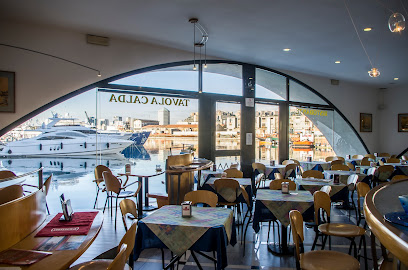
One Eyed Jacks
Experience the vibrant American pub culture at One Eyed Jacks in Genoa, where great food and a lively atmosphere come together.
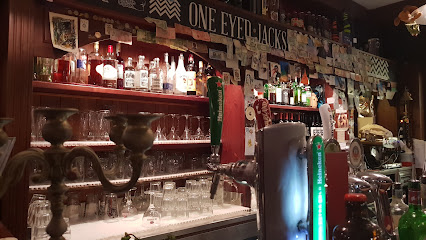
The Honey Bar
Discover the sweet side of Genoa at The Honey Bar, a unique destination blending delicious honey-infused cocktails with a cozy atmosphere.
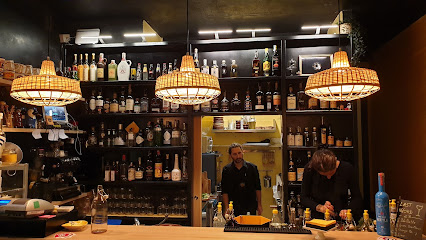
Manhattan Bar
Discover the vibrant Manhattan Bar in Genoa, where exquisite wines and lively ambiance await every traveler seeking the perfect relaxation spot.
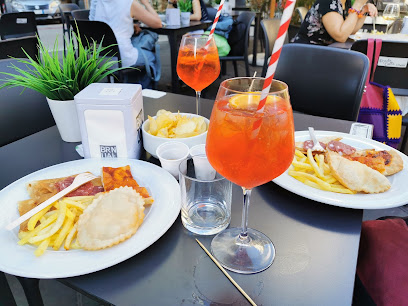
Local Phrases
-
- HelloCiao
[chow] - GoodbyeArrivederci
[ah-ree-veh-dehr-chee] - YesSì
[see] - NoNo
[noh] - Please/You're welcomePer favore/Prego
[pehr fah-voh-reh/preh-goh] - Thank youGrazie
[grah-tsyeh] - Excuse me/SorryScusa/Mi dispiace
[skoo-sah/mee dees-pyah-cheh] - How are you?Come stai?
[koh-meh stai] - Fine. And you?Bene. E tu?
[beh-neh. eh too] - Do you speak English?Parli inglese?
[pahr-lee een-gleh-zeh] - I don't understandNon capisco
[non kah-pee-skoh]
- HelloCiao
-
- I'd like to see the menu, pleaseVorrei vedere il menu, per favore
[vohr-reh-ee veh-deh-reh eel meh-noo, pehr fah-voh-reh] - I don't eat meatNon mangio carne
[non mahn-joh kahr-neh] - Cheers!Salute!
[sah-loo-teh] - I would like to pay, pleaseVorrei pagare, per favore
[vohr-reh-ee pah-gah-reh, pehr fah-voh-reh]
- I'd like to see the menu, pleaseVorrei vedere il menu, per favore
-
- Help!Aiuto!
[ah-yoo-toh] - Go away!Vai via!
[vah-ee vyah] - Call the Police!Chiama la polizia!
[kyah-mah lah poh-lee-tsyah] - Call a doctor!Chiama un dottore!
[kyah-mah oon doh-toh-reh] - I'm lostMi sono perso
[mee soh-noh pehr-soh] - I'm illSto male
[stoh mah-leh]
- Help!Aiuto!
-
- I'd like to buy...Vorrei comprare...
[vohr-reh-ee kohm-prah-reh] - I'm just lookingSto solo guardando
[stoh soh-loh gwar-dahn-doh] - How much is it?Quanto costa?
[kwahn-toh koh-stah] - That's too expensiveÈ troppo caro
[eh troh-poh kah-roh] - Can you lower the price?Puoi abbassare il prezzo?
[pwah-ee ahb-bahs-sah-reh eel preh-tsoh]
- I'd like to buy...Vorrei comprare...
-
- What time is it?Che ora è?
[keh oh-rah eh] - It's one o'clockÈ l'una
[eh loo-nah] - Half past (10)Le dieci e mezza
[leh dee-eh-chee eh meh-tzah] - MorningMattina
[maht-tee-nah] - AfternoonPomeriggio
[poh-meh-ree-joh] - EveningSera
[seh-rah] - YesterdayIeri
[yeh-ree] - TodayOggi
[oh-jee] - TomorrowDomani
[doh-mah-nee] - 1Uno
[oo-noh] - 2Due
[doo-eh] - 3Tre
[treh] - 4Quattro
[kwah-troh] - 5Cinque
[cheen-kweh] - 6Sei
[seh-ee] - 7Sette
[seht-teh] - 8Otto
[oh-toh] - 9Nove
[noh-veh] - 10Dieci
[dee-eh-chee]
- What time is it?Che ora è?
-
- Where's a/the...?Dov'è un/il...
[doh-veh oon/eel] - What's the address?Qual è l'indirizzo?
[kwahl eh leen-dee-ree-tsoh] - Can you show me (on the map)?Puoi mostrarmi (sulla mappa)?
[pwah-ee mohs-trar-mee soo-lah mahp-pah] - When's the next (bus)?Quando passa il prossimo (autobus)?
[kwahn-doh pahs-sah eel prohs-see-moh ow-toh-boos] - A ticket (to ....)Un biglietto (per ....)
[oon beel-yet-toh pehr]
- Where's a/the...?Dov'è un/il...
History of Genoa
-
Genoa's history as a powerful maritime republic began in the 11th century. Known as La Superba ('The Proud One'), the city was a key player in Mediterranean trade and established colonies and trading posts throughout the region. Genoa's shipbuilding prowess and strategic port location enabled it to compete with other maritime powers like Venice and Pisa.
-
During the Crusades, Genoa played a significant role in aiding the Christian forces. The city's fleet transported soldiers, and Genoese merchants established trade routes and colonies in the Middle East. These ventures brought immense wealth to Genoa and helped it secure trading privileges and influence in the Holy Land.
-
The 13th and 14th centuries marked the Golden Age of Genoa. During this period, the city-state reached the height of its economic and political power. The Banco di San Giorgio, one of the world's first banks, was founded in Genoa in 1407. The city's wealth funded the construction of magnificent palaces and churches, many of which still stand today.
-
Christopher Columbus, the renowned explorer who discovered the Americas, was born in Genoa in 1451. His voyages across the Atlantic were partly inspired by the maritime traditions and ambitions of his hometown. The city's connection to Columbus is celebrated in various monuments and museums, including the Casa di Colombo, a replica of his childhood home.
-
The Battle of Meloria in 1284 was a crucial naval conflict between Genoa and Pisa. Genoa's victory in this battle marked the decline of Pisa's naval power and solidified Genoa's dominance in the Mediterranean. The triumph at Meloria allowed Genoa to expand its territories and enhance its commercial influence.
-
The 16th century witnessed a cultural renaissance in Genoa, characterized by a flourishing of arts and architecture. Wealthy families, such as the Doria and Grimaldi, patronized artists and architects, leading to the creation of exquisite palazzi and art collections. The Strada Nuova, now Via Garibaldi, showcases some of the finest Renaissance architecture in the city.
-
The Republic of Genoa came under French influence during the Napoleonic Wars. In 1797, Napoleon Bonaparte transformed the old republic into the Ligurian Republic, a French satellite state. This period of French control lasted until 1815, when Genoa was incorporated into the Kingdom of Sardinia following the Congress of Vienna.
-
The 19th century brought industrialization to Genoa, transforming it into a major industrial and commercial hub. The expansion of the port and the development of shipbuilding and steel industries boosted the city's economy. This period also saw significant urban development, including the construction of new infrastructure and public buildings.
-
Genoa faced significant challenges during World War II, including heavy bombings that damaged the port and historic buildings. Despite these hardships, the city played a crucial role in the Italian Resistance movement. After the war, Genoa underwent extensive reconstruction and modernization, restoring its position as a key economic center in Italy.
-
Modern-day Genoa is a vibrant city that blends its rich history with contemporary culture. It is home to UNESCO World Heritage Sites, such as the Palazzi dei Rolli, and hosts numerous cultural events and festivals. The city's historic port area, Porto Antico, has been revitalized and now features museums, shops, and restaurants, making it a popular destination for locals and tourists alike.
Genoa Essentials
-
Genoa is well-connected by air, sea, and land. The main airport is Cristoforo Colombo Airport (GOA), located about 7 km from the city center. It offers flights to and from several European cities. You can also reach Genoa by train, as it has two main railway stations: Genova Piazza Principe and Genova Brignole, both of which connect to major Italian cities like Milan, Rome, and Florence. For those traveling by car, Genoa is accessible via the A10, A7, and A12 motorways. Additionally, the city is a major port, with numerous cruise ships docking at the Porto Antico.
-
Genoa has an extensive public transportation system, including buses, trams, and a metro line. Tickets can be purchased at ticket machines, kiosks, or via a mobile app, and must be validated upon boarding. Taxis are available but can be expensive. For a unique experience, try the city's funiculars and elevators, which offer stunning views. Walking is also a great way to explore the historic center. Bike rentals are available, but be aware of the city's hilly terrain.
-
The official currency in Italy is the Euro (€). Credit and debit cards are widely accepted in hotels, restaurants, and shops. However, it's a good idea to carry some cash, especially for small purchases or in more traditional markets. ATMs are plentiful throughout Genoa, and currency exchange offices are available in tourist areas and at the airport. Contactless payments are increasingly common.
-
Genoa is generally a safe city, but like any urban area, it's important to stay vigilant. Be cautious in crowded places, such as markets and public transportation, where pickpocketing can occur. Avoid wandering alone late at night in isolated areas, particularly around the port and the old town's narrow alleyways (caruggi). Stick to well-lit, populated areas and keep your belongings secure.
-
In case of emergency, dial 112 for immediate assistance, which is the general emergency number in Italy. For medical emergencies, you can call 118. The main hospital in Genoa is Ospedale San Martino, which offers comprehensive medical services. Pharmacies are widely available and usually have a green cross sign. Many pharmacies offer 24-hour service, and you can find the nearest open pharmacy posted on the door of any closed one.
-
Fashion: Do dress stylishly but comfortably. Italians appreciate good fashion sense. Avoid overly casual attire like flip-flops and beachwear in the city center. Religion: Do respect religious customs, especially when visiting churches. Wear modest clothing and cover your shoulders and knees. Public Transport: Do validate your ticket before boarding. Don’t forget to check the schedule, as some services may be limited on weekends and holidays. Greetings: Do greet people with a friendly 'Buongiorno' (Good morning) or 'Buonasera' (Good evening). A handshake is common, but close friends may kiss on both cheeks. Eating & Drinking: Do try local dishes like pesto, focaccia, and seafood. Don’t rush your meals; Italians enjoy leisurely dining. Avoid asking for cheese on seafood dishes, as it is considered a culinary faux pas.
-
To experience Genoa like a local, visit the Mercato Orientale, a bustling market offering fresh produce, meats, and local delicacies. Explore the Boccadasse neighborhood, a charming fishing village with colorful houses and a relaxed vibe. Take a stroll along the Passeggiata Anita Garibaldi, a scenic coastal walk in the Nervi district. Don’t miss the aperitivo hour, typically from 6 pm to 8 pm, where you can enjoy a drink and complimentary snacks at local bars. Engage with locals by learning a few basic Italian phrases; they will appreciate your effort.
Trending Landmark in Genoa
-
Aquarium of Genoa
-
Piazza De Ferrari
-
Porto Antico
-
Cattedrale di San Lorenzo
-
Galata Museo del Mare
-
Doge's Palace
-
Christopher Columbus' House
-
Piazza della Vittoria
-
Piazza Corvetto
-
Royal Palace Museum
-
Natural Area Parco delle Mura
-
Villa Durazzo-Pallavicini
-
Bigo
-
D'Albertis Castle
-
Santissima Annunziata del Vastato
Nearby Cities to Genoa
-
Things To Do in Cinque Terre
-
Things To Do in Parma
-
Things To Do in Milan
-
Things To Do in Turin
-
Things To Do in Pisa
-
Things To Do in La Rousse
-
Things To Do in Saint Roman
-
Things To Do in Lucca
-
Things To Do in Larvotto
-
Things To Do in Monte Carlo
-
Things To Do in La Condamine
-
Things To Do in Monaco-Ville
-
Things To Do in Moneghetti
-
Things To Do in Les Moneghetti
-
Things To Do in Fontvieille

















